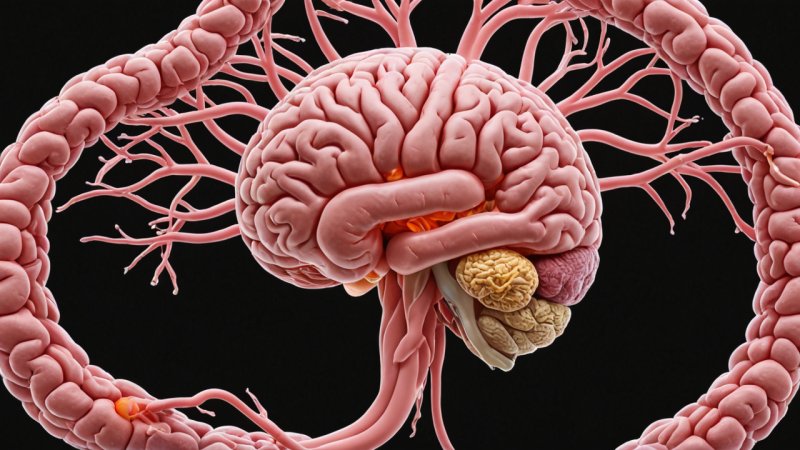The gut-brain axis is a fascinating and complex communication network between the gastrointestinal tract and the brain. Recent research has unveiled the significant role this connection plays in various health outcomes, influencing everything from mood to immune response. Understanding the gut-brain axis is essential for grasping how our mental and physical health are intertwined.
At the core of the gut-brain axis are the gut microbiota—trillions of microorganisms residing in our intestines. These microbes are not just passive inhabitants; they actively participate in metabolic processes and produce neurotransmitters that can affect brain function. For instance, the gut microbiome can produce serotonin, a neurotransmitter that plays a key role in mood regulation. Research suggests that a healthy balance of gut bacteria is crucial for maintaining emotional well-being.
Moreover, the gut-brain connection is bidirectional. Just as gut health can influence brain function, mental states can impact gut health. Stress and anxiety can lead to gastrointestinal issues, such as irritable bowel syndrome (IBS). This reciprocal relationship highlights the importance of managing stress and maintaining a healthy lifestyle to support both gut and brain health.
Recent studies have also explored the implications of the gut-brain axis in various medical conditions. For example, researchers have found that individuals with depression often have altered gut microbiota compared to those without the condition. This discovery has led to innovative treatments, such as probiotics and dietary interventions aimed at restoring gut health to improve mental health outcomes.
In addition to mental health, the gut-brain axis has been linked to neurodegenerative diseases like Alzheimer’s and Parkinson’s. Emerging evidence suggests that an imbalance in gut bacteria may contribute to the progression of these diseases. By understanding this connection, scientists hope to develop preventative strategies and treatments that target gut health as a means to mitigate neurological decline.
Furthermore, the gut-brain axis is increasingly recognized in the realm of nutrition. Diet plays a pivotal role in shaping the gut microbiome. Consuming a diverse array of fruits, vegetables, whole grains, and fermented foods can foster a healthy microbiota, which in turn supports optimal brain function. On the other hand, diets high in processed foods and sugars may disrupt gut health, leading to negative health outcomes.
In conclusion, the gut-brain axis is a vital area of research that underscores the interconnectedness of our physical and mental health. By understanding how gut health influences brain function and vice versa, we can take proactive steps to enhance our overall well-being. Maintaining a balanced diet, managing stress, and considering the role of gut microbiota in our health may lead to significant improvements in both mental and physical health.






